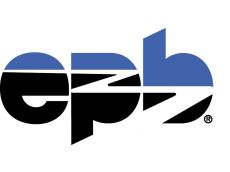
Fast, affordable Internet access for all.

The effort to restore local authority in deciding whether or not to build a municipal fiber network is full speed ahead.
On Monday, the FCC responded to petitions from Chattanooga, TN and Wilson, NC by opening up formal proceedings on the matter, and requesting people weigh in on the issue. Reporters from the Washington Post to GovTech covered the story.
Starting off this week’s Media roundup, we hear from Carl Weinschenk with IT Business Edge. He stated what we’ve all been thinking (and saying) for a while now:
“The fight over the right of municipalities to build their own networks seems like such a no-brainer that it takes some digging to even figure out why opposition to the idea exists.”
The Switch’s Brian Fung helped do that digging, and wrote an excellent piece on how the municipalization of electricity in the late-19th century fits into the discussion, and how that history can help to build a case for community networks.
“[In 1933] Roosevelt launched the Tennessee Valley Authority (TVA) and the Rural Electrification Administration... ‘TVA went in with the notion of, 'Let's make power cheap enough that the average person can afford it, and let's make money by selling on volume — not on massive margins," said Harold DePriest, chief executive of the public electric utility in Chattanooga, Tenn. "That worked for TVA. And at the time, it forced the private power companies to reduce the rates.’"
GovTech’s article, while it questions whether municipal networks are the answer, raises a powerful point: If ISP’s were getting the job done, cities wouldn’t have to come in and set up networks.
“EPB officials [in Chattanooga] say the FCC is required by Congress to remove barriers to Internet accessibility. The point of EPB’s petition is to remind the FCC of that and solicit the agency’s help in changing current state law.

Joyce Coltrine, for one, is on board... She says Internet providers have snubbed her and her neighbors for years. She says broadband is not available in her slice of the county… Coltrine told commissioners that Internet hot spots and 4G data packages are too expensive and spotty to rely on for dependable connections. Her frustrations were affirmed by an “Amen” from the crowd and other murmurs of agreement.”
After months of discussion and a blog post that stated Chairman Wheeler’s support of a community’s right to fair and open competition, The consumerist’s Chris Morran put it bluntly: “Put Up or Shut Up”.
Lightreading took up the topic from more than one angle. Carol Wilson wants to know:
“... waiting for incumbents to get around to upgrading aging copper networks in many areas seems a strategy already doomed to failure. These companies exist to make money, and if they could have done that building gigabit networks in smaller cities and towns, it would have happened by now. So if not a muni-backed network, then what?”
Jason Meyers talked to Teresa Mastrangelo, who founded BroadbandTrends LLC. She also has noticed a disturbing (but not surprising) trend in who gets connected and who’s left out in the cold:
"...Clearly these members of Congress have a lot of funding coming to them from big players," she says. "The Communications Act is actually preventing people from participating in the digital age in these cases. In un-served and under-served markets, there should be exceptions to this rule."
The FCC anticipated that communities would step forward to ask them to overturn the state limits. Ars Technica’s Jon Brodkin makes clear that the petition is focused on the specific communities that filed the petition:
“These petitions will be handled on a case-by-case basis, so don't expect the FCC to make a single declaration that preempts all state laws inhibiting municipal broadband. ‘The FCC has the authority to take broader action through rulemakings—but that is not what is happening here,’ an FCC spokesperson said.”
The public comment period for the Chattanooga and Wilson petitions ends August 29. the Coalition for Local Internet Choice (CLIC) has posted instructions on how you can have your voice heard.
Iowa
Iowa receives $26.2 million in emergency education relief to expand broadband access, Discover Muscatine
Minnesota
Colorado
Little-known Internet network plans Western Colorado expansion to link students, nonprofits to supercomputers by Tamara Chuang, Colorado Sun
Louisiana
California
Partnerships can close the digital divide by Apoorva Pasricha & Kevin Frazier, GovTech
Colorado
Arizona
Mohave Electric Cooperative moves forward to build fiber optic network in partnership with TWN Communications, Cision PR Newswire
Arkansas
